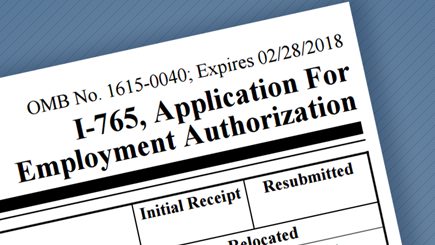In this certified nationwide class action, asylum applicants whose initial applications for employment authorization documents (EADs) were not adjudicated within the 30-day period required by regulation sought a court order compelling U.S. Citizenship and Immigration Services (USCIS) to comply with the regulatory timeframe.
Following summary judgment briefing by both parties, the court ruled in Plaintiffs’ favor on July 26, 2018. The court ordered USCIS to follow the law and timely adjudicate initial EAD asylum applications. While the government initially appealed that decision, it ultimately sought dismissal of the appeal, leaving the court’s order in place.
On June 22, 2020, the government published a new rule eliminating the 30-day processing deadline for initial asylum EAD applications. 85 Fed. Reg. 37,502 (June 22, 2020). However, a different federal court held that this new rule could not be applied to members of Casa de Maryland (CASA) and Asylum Seekers Advocacy Project (ASAP). Casa de Maryland Inc. et. al. v. Chad Wolf et. al., No. 8:20-cv-02118-PX (D.D.C. Sept. 11, 2020). Therefore, members of ASAP and CASA who filed initial asylum EAD applications continued to Rosario class members entitled to adjudication with 30 days.
On February 7, 2022, a federal court vacated the June 22, 2020 rule that eliminated the 30-day processing requirement. AsylumWorks v. Mayorkas, No. 1:20-cv-03815-BAH, 2022 WL 355213 (D.D.C. Feb. 7, 2022). As a result, the full Rosario class is restored and all asylum applicants who file a request for an initial EAD are entitled to have that application processed within 30 days, with or without ASAP or CASA membership.
For more information about the Rosario court’s order and the partial implementation plan, please read our Frequently Asked Questions.



